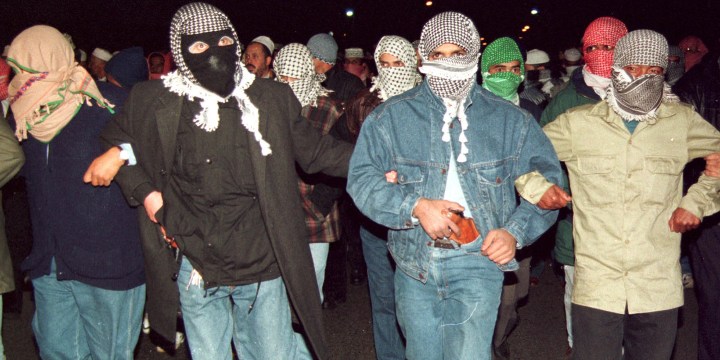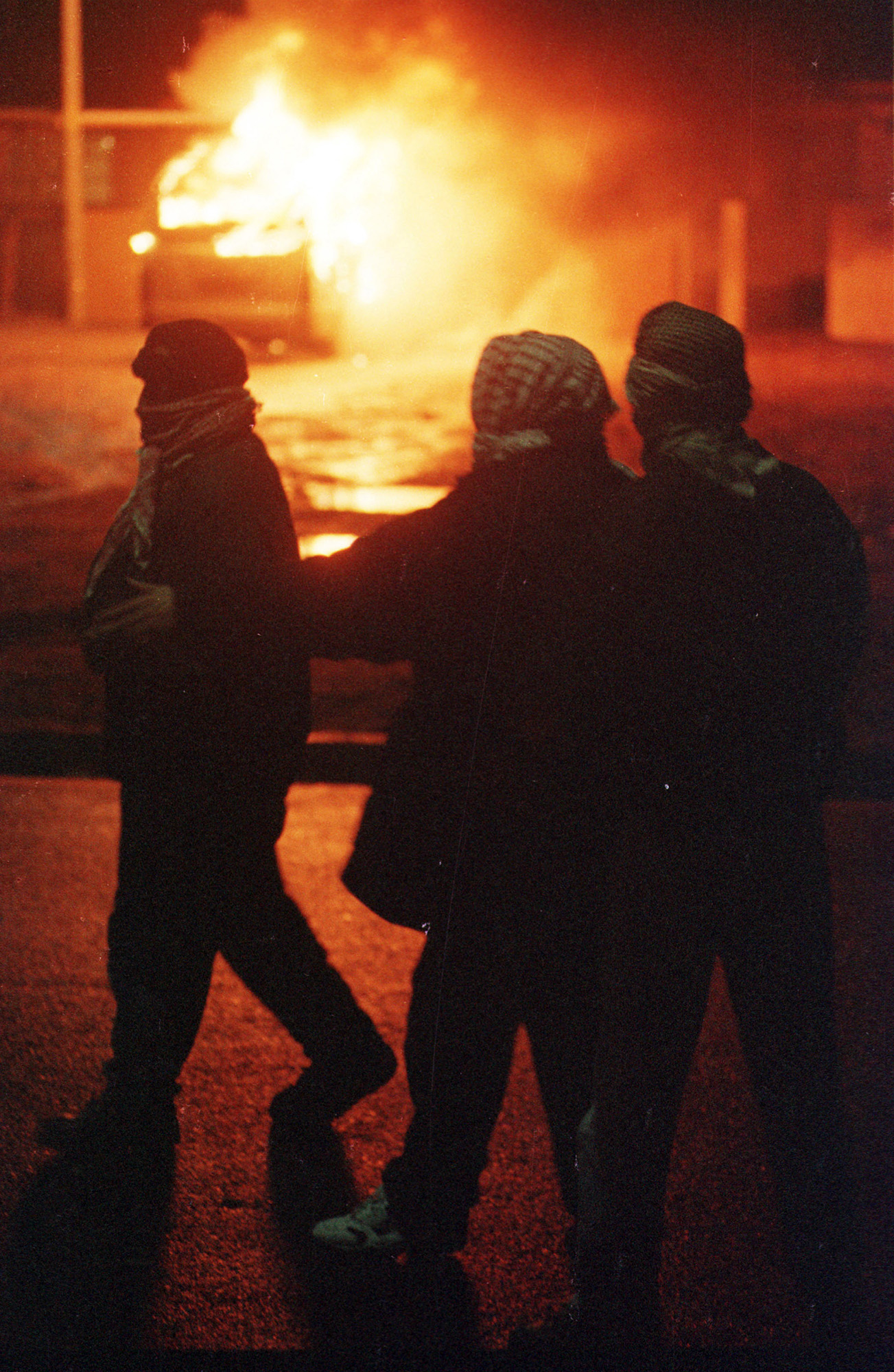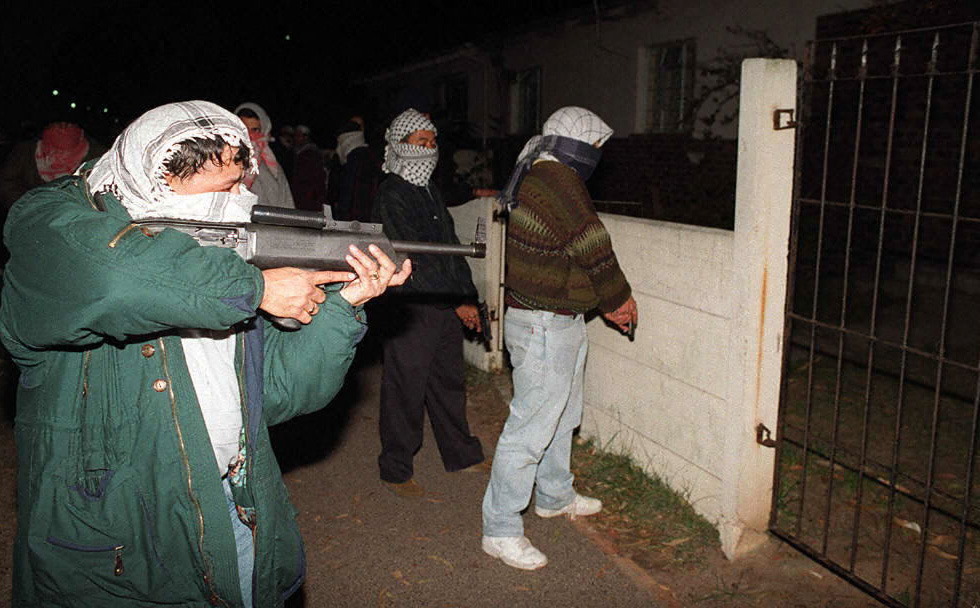AGE OF THE ASSASSIN
How Pagad was stopped and the Scorpions emerged – and the renewed need for criminal justice innovation

The state’s crackdown on Pagad’s bombing and killing campaign was steeped in innovation – from policing to prosecution and witness protection. As South Africa faces an existential organised crime threat, questions arise about whether the criminal justice system can once again innovate, says criminologist and author Mark Shaw.
It took more than three years to write Breaking the Bombers: How the Hunt for Pagad Created a Crack Police Unit, containing interviews with survivors of bombings, the perpetrators and others who led the investigations. Some, however, remained reluctant to talk.

Author Mark Shaw. (Photo: Supplied)
“It seemed to be a story that needed and should be told because of its contemporary significance… You have so much that is South African in this story,” author Mark Shaw, director of the Global Initiative against Transnational Organized Crime, said in an interview with Daily Maverick on Monday.
“The response to Pagad was a classic pragmatic South African response. It’s not perfect … most of the core group of bombers were not convicted. But there was a recognition; there was a bonding across institutions for a response … The question I want to ask is: Is that possible again? And I don’t know the answer to that…”
Community mobilisation
From early 1996, Pagad emerged as an anti-drug and gangsterism vigilante group with significant support from crime-ravaged communities on the Cape Flats, but also elsewhere.
With marches on gangsters’ and drug dealers’ homes and locations including Parliament, Pagad was catapulted into the national and international spotlight when Hard Livings gang co-boss Rashaad Staggie was beaten, shot and set alight on 4 August 1996.
As marches continued, alongside drug rehab and other social activities, behind the scenes Pagad morphed into the G-Force “unit” that led a campaign of killing gang bosses and others, and bombings of restaurants, shopping centres, nightclubs and even the airport. It began with pipe bombs and escalated into car bombs, although not all detonated.
To do its work, Pagad quite early on became engaged in criminal activities like extorting drug traffickers and securing weapons.
“What began as a community mobilisation turns into a criminal operation under the guise of a social movement,” explains Shaw, adding this was not unusual, also globally, for vigilante groups to begin to feed off the illicit markets they initially attacked.
“It’s almost always what happens – vigilante groups go rogue.”

The scene during an attack at Richard ‘Pol’ Stemmet’s home in 1997, a vehicle in flames. During the late 1990s, Pagad was suspected of being behind a string of attacks on suspected gangsters and drug dealers. (Photo: Benny Gool)
But for almost two years the state seemed stuck – traditional detective methods flailed, as did the saturation of visible policing Operation Recoil and Operation Saladin.
“Pagad was over time many things. It was a social movement. It was an ideological movement. It was an urban terror group and it had elements of criminality… It was a vigilante group with an ideology.
“In the beginning in 1996, the state doesn’t know what to do.”
Turning point
Key in the police, state and Pagad dynamics, according to Shaw, was the 25 August 1998 bombing of the Planet Hollywood restaurant at the V&A Waterfront that killed two people and injured 24.
“This was the bombing of a prominent civilian target, at the core of the city, projected around the world… This was an absolutely crucial turning point.”
Bulelani Ngcuka had just become the boss of a new prosecution service that had been established on 1 August 1998, even if eyebrows were raised in some circles at the appointment of the ANC parliamentarian who, at the time, was National Council of Provinces deputy chairperson.
In the book, Shaw traces the involvement, and coming together, of key actors like Ngcuka, advocate Percy Sonn, founding boss of the Investigative Directorate for Organised Crime (Idoc) that was the precursor to the Scorpions, which he also led between 2001 and 2003, and the then national police commissioner George Fivaz.
“Do structures or people drive history? I think personality counted hugely – on all sides… People determined how this ran. When (Pagad) was seen as a threat to the state, the pressure to deliver was high,” Shaw tells Daily Maverick in explaining the dynamics behind this key period of innovation in the criminal justice system between 1998 to 2001.

Members of People Against Gangsterism and Drugs (Pagad) demonstrate outside an alleged drug dealer’s home in Athlone, Cape Town, in 1996. Rashaad Staggie, co-leader with his twin brother Rashied of the Hard Livings gang, was gunned down and killed during a demonstration by Pagad outside one of his homes in Salt River, Cape Town. (Photo: Anna Zieminski / AFP)
By September 1999, after then president Thabo Mbeki’s State of the Nation Address announcement, the Scorpions were established. And Christmas of 1999 proved a crucial moment in setting out the state’s ultimately decisive response to Pagad, according to the book, when an emergency meeting was held at the Idoc HQ in the wake of another bombing that injured seven police officers in what appeared to be a targeted attack.
“The institutional changes came. A lot of people took risks, in the undercover units, Ngcuka himself… Maybe it was just the period of risk. It was after the transition (to democracy), the ANC had a lot of legitimacy.”
Pagad hit squads decimated gangs operating on the Cape Flats in the late 1990s
A new existential threat
Some of this space for calculated risk-taking seems gone today just as South Africa is facing an evolving and serious threat of organised crime.
“Pagad was a specific threat at a specific time. We face another existential threat which we are underestimating, organised crime, and yet it seems business as usual,” says Shaw.
“I think there is a slow realisation, as in the case of Pagad, that this is massively threatening.”
It’s time for a reconsideration of the state’s response and a need for “big steps” and innovation. This could, for example, include a specialised anti-organised crime agency.
“We need a fundamental rethink and another period of innovation in the criminal justice system. We face a major challenge with complex, diffused, dynamic, organised crime… And yet we are using a set of trite, bureaucratic old tools and we lack the skills and strategic response.
“And that is what the book is trying to say,” says Shaw. DM


















A communist goverment feeding off its own citizens to enrich themselves,only thing that will change this country ,is a new goverment ,who could tackle crime